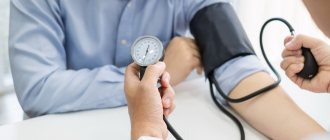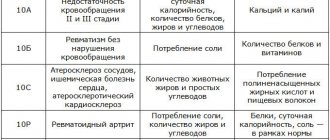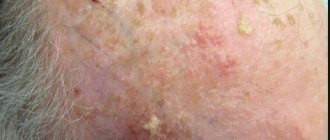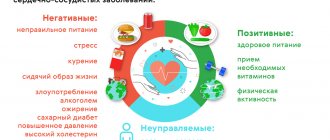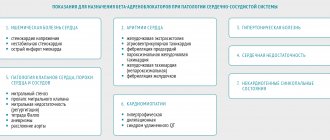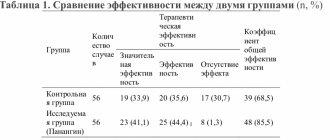- Healthy Heart Library
- Prevention of cardiovascular diseases
Almost all diseases are easier to prevent than to treat later, and cardiovascular pathologies are no exception. In recent years, the frequency of such diseases has been steadily increasing, which is not surprising: most diseases of the heart and blood vessels are rightly considered by doctors to be diseases of civilization. They find nutritious soil in the form of the lifestyle of modern man with his poor nutrition, insufficient physical activity, acute and chronic stress. Therefore, doctors never tire of reminding us of the enormous role of timely prevention of heart disease, especially in patients at risk who are prone to such diseases. Preventive measures help prevent diseases, improve the patient’s quality of life, and prolong it.
Statistics on heart and vascular diseases
In Russia, heart and vascular diseases remain one of the main causes of mortality (up to 47%). However, in recent years there has been a gradual decrease in both the overall incidence of such diseases and mortality from them. Doctors attribute this both to the success of mass medical examinations and the increased effectiveness of modern treatment of heart diseases, and to increased public awareness of the importance of preventing such pathologies.
Preventative measures have been proven to protect against cardiovascular disease more effectively than any other measure. This is proven by research by epidemiologists: for example, a 50% reduction in the incidence of mortality from coronary heart disease is associated precisely with complex and active prevention, and only 40% with the improvement of methods of treating this pathology.
At what age should you start looking after your heart health?
If we lived in an ideal world where everyone was active in exercise, ate healthy foods, and spent plenty of time outdoors, then heart health would be something we wouldn't think about until our gray hairs turned gray. But, as the practice of recent years shows, cardiovascular diseases are getting younger, and even a 30-year-old man can experience a heart attack.
Therefore, doctors recommend monitoring your health from an early age. And in order not to treat serious illnesses, you need to be attentive to your health and adhere to WHO recommendations for leading a healthy lifestyle.
Major heart and vascular diseases
Diseases of the heart and blood vessels constitute a very large group, so the list below represents only the most basic and common pathologies:
- IHD (coronary heart disease), as well as its complications - heart attack, angina pectoris, cardiosclerosis;
- arterial hypertension;
- heart rhythm disturbances;
- congenital and acquired heart defects;
- heart failure;
- infectious and inflammatory pathologies of the heart - endo-, myo-, pericarditis;
- inflammatory vascular pathologies;
- atherosclerosis;
- systemic vascular pathologies;
- bleeding disorders.
Causes of cardiovascular diseases
The main cause of cardiovascular pathology is the lifestyle of a modern person. Insufficient physical activity, poor nutrition with a predominance of animals, “heavy” fats and “fast” carbohydrates, refined and canned foods, and fast food lead to increased blood cholesterol levels and metabolic disorders. The acute and chronic stresses that modern people face also contribute.
In addition, do not forget about bad habits: smoking and drinking alcoholic beverages negatively affect the condition of the walls of blood vessels and blood flow. All this together leads to the formation of certain pathologies: atherosclerosis, ischemic heart disease, hypertension and many others.
Primary and secondary prevention of heart and vascular diseases
Rational prevention of cardiac pathology is always comprehensive. It should include rationalization of nutrition, physical activity, stress management, giving up bad habits, and regular medical examinations. All of these measures can be classified as primary prevention measures, which are taken when the risk of heart disease is low. In the presence of pronounced predisposing factors to heart disease, it is necessary to use secondary prevention measures. Among them are weight loss, normalization of cholesterol and blood sugar levels, lowering blood pressure, and normalizing heart rate.
Nutrition to prevent heart disease
In order to ensure effective prevention of cardiovascular diseases, it is necessary to ensure a balanced diet. In this case, the best solution would be split meals in small portions 4-5 times a day; this is much healthier for the heart than two dense meals of large quantities of food. You should have dinner no later than 3 hours before going to bed.
If you are already overweight, you should adhere to a low-calorie diet, but calorie restriction should not be very strict. You can’t go hungry: a sharp restriction of the body’s diet leads to a deficiency of nutrients, including for the heart muscle.
Basic principles of nutrition for the prevention of heart disease:
- limiting “fast” carbohydrates - sugar, baked goods, sweets; preference should be given to dried fruits, honey, whole grain bread;
- The consumption of animal fats is limited; it is better to give preference to olive and flaxseed oil. It is better to exclude palm and coconut oil;
- limit the consumption of caffeinated drinks;
- salt consumption is limited, it is better to exclude sausages and smoked meats, pickles;
- It is better to completely eliminate the consumption of alcoholic beverages;
- from meat it is better to choose lean veal, chicken, rabbit, turkey;
- nuts, flax seeds, sesame are useful;
- It is recommended to consume large amounts of fiber in the form of vegetables, fruits, and herbs;
- healthy sea fish and seafood, fish oil in the form of supplements;
- It is recommended to consume fermented milk products daily, which stimulate digestion and saturate the body with calcium.
- Fast food, semi-finished products, products with an abundance of flavor enhancers and preservatives should be completely abandoned.
Dishes should be boiled, baked, steamed. It is recommended to completely exclude fried foods. It is necessary to drink a sufficient amount of liquid - up to one and a half to two liters per day. At the same time, strong tea or coffee should be avoided, preferring still mineral water, herbal tea, compote, fruit juice.
How to change your lifestyle to maintain heart and vascular health
A healthy lifestyle is an effective method of reducing the risk of cardiovascular diseases (CVD) caused by vascular atherosclerosis: coronary heart disease and myocardial infarction, cerebral vascular disorders and stroke, insufficient blood supply to the muscles of the lower extremities (severe pain when walking, gangrenous ulcers).
The most dangerous risk factors for developing cardiovascular diseases:
1. Increased level of CHOLESTEROL in the blood (C) due to an increase in “bad” cholesterol (part of LDL cholesterol and VLDL cholesterol) and a decrease in “good” cholesterol (HDL cholesterol). “Bad” cholesterol promotes the formation of atherosclerotic plaques, “good” cholesterol delays the growth of atherosclerotic plaques and removes excess cholesterol from tissues.
2. High blood pressure (BP).
3. Smoking.
Methods of comprehensive prevention of CVD:
- maintaining cholesterol levels no higher than 5 mmol/l in healthy people and no higher than 4.5 mmol/l in patients with cardiovascular diseases and/or diabetes;
- maintaining blood pressure levels no higher than 140/90 mm Hg;
- to give up smoking;
- providing sufficient physical activity (walking, swimming, etc. 4-5 times a week for 30 minutes).
Proper nutrition is an integral part of a healthy lifestyle. A healthy diet helps correct abnormalities in the cholesterol profile in the blood and lower blood pressure; it is a companion and assistant to their drug treatment.
Basic rules of a diet that reduces the risk of cardiovascular disease:
- reduction of excess weight, determined by the ratio of weight in kg/height (m)2, is necessary when this ratio is more than 27 kg/m2, especially when the waist circumference is more than 88 cm for women and more than 102 cm for men. It is most effectively achieved by reducing the consumption of fats and simple carbohydrates (sugar, honey, sweet carbonated drinks), as well as increasing physical activity (walking, sports);
- Most of the calorie intake - 50-60% should be carbohydrates - vegetables, fruits, grain products containing a lot of fiber (including water-soluble). This is pectin, the gluten of whole grain products, which removes cholesterol from the intestines. Consumption of simple carbohydrates (sugar, honey) - no more than 30-40 g per day;
- protein should make up at least 10-20% of calories, i.e. 100-120 g per day, including vegetable protein, which is rich in legumes and nuts;
- it is necessary to provide the body with vitamins in physiological quantities, including antioxidants (vitamins A, C, E), folic acid;
- Fat consumption should correspond to approximately 30% of calorie intake, with normal weight for men this is 75-90 g, for women - 50-65 g per day. Saturated fats (animal, solid vegetable fats) - 1/3 of consumed fats, the remaining 2/3 of fats should be unsaturated, liquid fats. These are vegetable oils (both sunflower and olive are required) and fish oil. Limiting the consumption of animal fats leads to a decrease in the consumption of cholesterol contained in them.
In recent decades, solid scientific data have emerged on some particularly “atherogenic” fats, that is, those that contribute to the development of atherosclerosis and related vascular and heart diseases. These substances include the so-called trans-isomers of fatty acids, that is, fatty acids with a spatial structure changed compared to the most common in nature. Consumption of trans-forms of fatty acids is associated with an increased risk of coronary heart disease, this has been proven in a number of scientific preventive programs.
According to WHO recommendations, the diet should not contain more than 1% of trans-forms of fatty acids, but so far in our country the number of trans-isomers is not even listed on the labels of fatty products, which would be extremely advisable for people and the medical community seeking to improve their diet.
It is known that natural, unprocessed vegetable fats (oils) contain only cis-isomers of fatty acids, which do not have an adverse effect on blood vessels. In butter, the amount of trans isomers is 5-8%. The main danger of the formation of a significant amount (up to 48%) of trans isomers is associated with the production of margarines, which are produced by the old method of passing hydrogen through liquid vegetable (for example, sunflower) oil at high temperature. Consumption of such margarines in food greatly increases the risk of developing atherosclerosis.
Currently, another method has been developed and used by some manufacturers to produce vegetable-fat spreads similar to butter, in which trans-isomers of fatty acids are not formed. It consists of intensive mixing of vegetable liquid oils (sunflower, soybean) with vegetable but solid oils (palm, coconut) without heating. As a result of this technology, a product is obtained that contains neither cholesterol nor trans isomers - a fatty product that meets the requirements of a healthy diet.
Additional dietary recommendations for patients with hypertension
If you have episodes of high blood pressure (> 140/90 mmHg):
- eliminate excess alcohol consumption (no more than 70 g of vodka or 250 g of dry wine per day);
- Limit your intake of salt and sodium-rich foods. Try not to add enough salt to your food. To improve the taste of food, use various herbs, spices, lemon juice, garlic;
- increase your consumption of foods rich in potassium and magnesium (potatoes, tomatoes, bananas, oranges, kiwi, as well as milk, meat, legumes, grains, especially oats and nuts).
Recommendations for choosing food products for the prevention of atherosclerosis
| Types of products | Recommended | Consume in moderation | Exclude from food |
| Cereals | Whole grain bread, wholemeal bread, porridge, pasta | Fine flour bread | Butter bread |
| Soups | Vegetables | Fish | With meat broth |
| Dairy | Low-fat dairy products and cheeses | Half-fat dairy products and fats | Whole milk, cream, fatty dairy products and cheeses |
| Eggs | Egg white | Eggs | Scrambled eggs with animal fats |
| Seafood | Scallop, oysters | Mussels, crabs, lobsters | Squid, shrimp |
| Fish | All types, especially sea | Fried in vegetable oils, lightly salted | Fried in animal fats, hard margarines or unknown fats |
| Meat and poultry | Chicken, skinless turkey, veal, rabbit | Lean varieties of beef, lamb, ham; liver | Fatty meat, duck, goose, fatty sausages, pates |
| Fats | Vegetable liquid oils: sunflower, olive, soybean | Soft vegetable fat spreads containing no trans fats | Butter, meat fat, lard, hard margarines |
| Vegetables and fruits | Any fresh, frozen, steamed, boiled, legumes | Potatoes fried in vegetable oils | Potatoes and other vegetables fried in animal or unknown fats |
| Nuts | Almonds, walnuts | Peanuts, pistachios, hazelnuts | Coconut, salted |
| Dessert | NOT sweetened juices, fruit drinks, popsicles | Confectionery, baked goods, creams, ice cream with vegetable fats | Baked goods, sweets, creams, ice cream, cakes made with animal fats |
| Seasonings | Pepper, mustard, spices | Unsalted sauces | Mayonnaise, sour cream salted |
| Beverages | Tea, coffee, water, soft drinks | Alcoholic drinks - small/moderate amounts | Coffee or chocolate drinks with cream |
(Text prepared based on materials from Professor N.V. Perova, Department of Biochemical Markers of Chronic Non-Infectious Diseases, State Scientific Research Center for Preventive Medicine)
Physical activity to prevent heart disease
Modern man is becoming less and less mobile: work, thanks to the automation of processes, requires less and less effort, transportation takes him to his place of work, even laundry, washing dishes, turning on the TV no longer require real physical activity. Sedentary weekdays flow into similar weekends spent watching TV. This lifestyle contributes to excess weight gain and poor blood circulation in the tissues. In order to avoid developing heart disease, you need to increase physical activity. The best solution would be reasonable exercise in the fresh air - walking, Nordic walking, skiing, cycling. Cardio exercises in the gym (exercise bike, treadmill) are also useful. Swimming and gymnastics have proven themselves well.
An important condition for such physical activity: it should not be excessive and should not provoke overwork.
At the same time, it is important that the loads be regular: it is much better to walk 2-3 km every day, that is, half an hour, than to arrange a grueling two-hour session in the gym.
What procedures can a cardiologist prescribe?
1. Daily blood pressure monitoring - ABPM.
Typically, blood pressure is measured simultaneously in a doctor's office, but this is not an objective indicator. During the ABPM procedure, special belts are placed on the patient’s body, which he does not remove during the day. The devices measure pulse and blood pressure every 30 minutes during the day and every hour at night. Sometimes your doctor may ask you to record your meal times and bedtimes.
This procedure does not cause any inconvenience, but the obtained indicators help to identify most heart diseases in the early stages. It should be done annually after 35 years.
2. Holter ECG monitoring.
Holter is the most modern and advanced method for diagnosing heart disease. As with ABPM, the holter is placed on the patient’s body for 24 hours. The only difference is the mandatory keeping of a diary of monitoring your condition. The following indicators must be entered into it:
- meal times;
- time of waking up and going to bed;
- physical activity, its duration and nature;
- medications taken;
- symptoms of poor health (dizziness, shortness of breath, etc.).
After 24 hours, the halter is removed, and all information from it is read by a computer. The result obtained is analyzed by a doctor, after which a diagnosis is made and treatment is prescribed.
At the Moscow MC “Health” you can not only get a consultation from an experienced cardiologist, but also undergo all the necessary diagnostic procedures. You should take care of your heart at any age. You should not wait for pain and attacks - they indicate already advanced heart problems. Get diagnosed on time, take care of yourself and be healthy!
Prevention of cardiovascular diseases in children
It is better to protect the health of the heart and blood vessels from the first days of a child’s life. This means that from the first months of life it is important to accustom your baby to gymnastics - naturally, appropriate for his age, and proper nutrition. By the way, eating habits established in childhood are sometimes very difficult to change, and a child accustomed to an abundance of baked goods and sweets will most likely suffer greatly in adulthood due to the need to follow a diet.
Key points for the prevention of heart and vascular diseases in children:
- rational nutrition and maintaining normal body weight;
- sufficient physical activity, sports;
- prevention of bad habits;
- regular medical examinations.
The example of parents plays a huge role: if they eat right, lead a healthy and active lifestyle, the baby will have the right example before his eyes, which he will unconsciously adhere to.
Preventing heart disease in older people
Natural age-related changes in the body inevitably affect the cardiovascular system. The walls of blood vessels lose their elasticity, atherosclerotic plaques appear on them, blood pressure rises, and blood flow decreases. The risk of thrombosis of peripheral vessels increases, including coronary (myocardial infarction), brain (ischemic stroke), retina (blindness), etc. Therefore, in old age, it is especially important to regularly visit a cardiologist - at least once every six months starting from 40-50 years.
In addition to examining a doctor, it is recommended to:
- ECG, including with stress (for men);
- blood test for lipids;
- coagulograms.
In addition, you need to regularly monitor your blood pressure using a household tonometer.
Medical examination
The Best Clinic uses a variety of modern methods for diagnosing heart diseases, such as echocardiography, cardiac probing, Holter monitoring, etc. These procedures make it possible to detect the disease at the earliest stages of development, which makes it possible to begin treatment on time, saving the patient’s health and even life.
In addition, we can take a blood test for cholesterol, measure blood pressure, and get a consultation with a cardiologist.
And contact your doctor immediately if:
- you felt sudden weakness;
- arms or legs have lost sensation for no apparent reason;
- there were difficulties with pronunciation or understanding of simple sentences;
- vision was severely impaired;
- An intense headache suddenly appeared.
These are signs that indicate that there is a clear disorder with your condition. It’s better to play it safe once again than to pay for neglecting your condition with immobility for many months, or even life.
But to prevent this from happening, an ordinary healthy person can already take several simple steps: rest more, walk, breathe clean air, do not give in to bad habits... And, of course, pay attention to any changes in your well-being.
And if you need to get advice or undergo a medical examination, contact us at Best Clinic, we work seven days a week.
Drugs for the prevention of cardiovascular diseases
Secondary prevention of cardiovascular diseases with the help of pharmaceuticals is extremely important, especially for people prone to such pathologies. For preventive purposes, complexes of vitamins and minerals, drugs with antithrombotic effects, and drugs that lower blood cholesterol levels can be taken. These drugs are usually sold without a prescription, but it is recommended that you consult a doctor before taking them.
Riboxin for the prevention of heart pathologies
Riboxin stimulates the supply of tissues, including the heart muscle, with oxygen, stimulates blood circulation, and normalizes heart rhythm. Taking the drug as a course course, treatment is prescribed by a doctor. There are contraindications, including gout and kidney failure.
Acetylsalicylic acid for the prevention of heart disease
Taking acetylsalicylic acid helps improve blood flow and has an antithrombotic effect. As a rule, for the prevention of heart disease, acetylsalicylic acid is produced in a special cardio dosage. To achieve the effect, long-term or continuous use is required. There are contraindications for use, including gastritis, gastric and duodenal ulcers.
Magnesium for the prevention of heart disease
Magnesium is a mineral that plays an important role in the health of the cardiovascular system, it helps stabilize the heart rhythm and lower blood pressure. Magnesium is included in many drugs for the prevention and treatment of cardiac diseases; your doctor will help you choose the optimal drug.
Fasostabil for the prevention of heart disease
Fasostabil is a complex drug in which the main active ingredient, acetylsalicylic acid, is supplemented with magnesium hydroxide. Thanks to this, the irritating effect of acetylsalicylic acid on the walls of the stomach is significantly reduced, in addition, magnesium has a mild hypotensive and stabilizing effect. The use of Fazostabil is preferable to taking regular acetylsalicylic acid; the drug is well tolerated.
When is it time to see a cardiologist?
You should visit a cardiologist annually, starting at age 35. This recommendation is especially relevant for those who have a family history of cardiovascular disease. Especially if they caused death. Sometimes you should see a doctor earlier. If you have:
- I often felt dizzy;
- darkens in the eyes;
- ringing in the ears appears;
- makes you feel hot;
- blood pressure or pulse fluctuates
then you need to go to a cardiologist as soon as possible, regardless of age!
Herbal medicine for the prevention of heart disease
Herbal medicines and various traditional medicines are available to everyone. It is important to remember that herbal remedies are only good as part of comprehensive prevention - they cannot replace a balanced diet or quitting smoking. In addition, individual intolerance or contraindications may also occur to herbal remedies. Among the “folk” remedies for the heart are:
- garlic - it should be consumed raw with food, as well as in the form of tincture, garlic oil;
- chokeberry, ground with honey;
- a mixture of persimmon and turnip juices with honey;
- a mixture of radish, carrot, beet juices with honey;
- a mixture of carrot juice with vegetable oil;
- a mixture of honey and royal jelly;
- hawthorn in the form of tea, tincture.
Ten steps to a healthy heart!
Ten preventive measures that are simple and accessible to absolutely everyone: save this list and let your heart be healthy!
- Step 1 - rational nutrition. In your daily diet, it is recommended to minimize the consumption of fatty foods, fried foods, and reduce the consumption of salt, sugar, and caffeine. It is recommended to give preference to sea fish, lean poultry, whole grain bread, and consume a sufficient amount of fiber-rich vegetables and fruits.
- Step 2 - normalization of body weight. Excess weight automatically becomes a burden for the heart and blood vessels, in addition, it reflects an unfavorable balance of cholesterol in the body. It is known that excess body weight also contributes to increased blood pressure. If you have extra pounds, you need to reconsider your diet and increase physical activity. By the way, not only body weight as such plays a role, which should be normal (Quetelet body mass index is not higher than 28.0), but also waist circumference - no more than 88 cm in women and no more than 102 cm in men.
- Step 3 - increase physical activity. Physical inactivity is the enemy of the heart and blood vessels, and for the sake of their health, it is necessary to maintain a sufficient level of activity whenever possible. The choice of physical exercise depends on taste and capabilities; it could be swimming, gym classes, walking, not using a car or elevator, or gymnastics. What is important is not the specific type of activity, but the fact that the body will be sufficiently active at the same time.
- Step 4 - giving up bad habits. Smoking, alcohol, drugs, excessive coffee consumption and even energy drinks with excessive caffeine content gradually lead to diseases of the cardiovascular system, so you should get rid of such habits. If independent cessation is impossible due to an established addiction, it is worth resorting to special treatment.
- Step 5 - overcoming stress. Acute and chronic stress is an integral part of the life of a modern person and it is impossible to completely eliminate it. But a big role is played by a person’s personal perception of stressful situations, a reasonable and adequate reaction to them. Positive communication with pleasant people, relaxing hobbies, sports and walks, a rational daily routine in which there is time for rest, travel, and natural sedatives help to distract yourself. As with physical activity, the choice of methods to deal with stress remains up to the individual and depends on his preferences.
- Step 6 - control blood pressure. With blood pressure 140/90 mmHg. and below, control measurements should be carried out 1-3 times a year, at 140-180/90-105 mmHg. - twice a month, with blood pressure above 180/105 - daily. For persistent blood pressure levels above 140/90, antihypertensive therapy should be administered.
- Step 7 - systematic examinations with a cardiologist for those who are at risk for cardiovascular diseases and with a general practitioner for everyone else. Using modern equipment, a doctor can detect a disease even when it does not cause discomfort for the patient. And the earlier it is started, the more effective treatment is!
- Step 8 - control blood cholesterol levels. It should be done every year for all people over 30 years of age. The norm for a healthy person is 5 mmol/l, for a patient with diabetes mellitus - 4-4.5 mmol/l.
- Step 9 - Control your blood sugar levels. Also held annually starting at age 40. The norm is 3.3-5.5 mmol/l.
- Step 10 - taking blood thinning medications, for example, Fasostabil. The antiplatelet effect of acetyl salicylic acid is the most important factor in the prevention of coronary artery disease and its complications - myocardial infarction and ischemic stroke. Before starting to take the drug, you should consult your doctor.
Prevention of heart and vascular diseases in general is not difficult for the patient. Take care of yourself, be attentive to your health and your heart will thank you!
How to prevent heart disease?
Prevention of cardiovascular diseases in healthy people is a whole range of measures. Their essence is to purposefully change life for the better by... Alas and ah, getting rid of bad habits. Gradual, of course. And the first thing you need to do is give up such a habit as...
Smoking
If a person systematically smokes, the tone of the vascular walls increases, which is the main cause of atherosclerosis... But this is a medical fact that everyone already knows. Go ahead, quit smoking right away, if you’ve already been smoking for ten years...
But it’s not necessary right away. If it doesn't work, you can try gradually.
Try switching to lighter cigarettes and slightly reducing the number of cigarettes you smoke per day. At the same time, do not go beyond the limits you set for yourself. Seven is seven. And not a single one more! Then, learn to share a cigarette. Smoke 2/3 first, then half. And don't forget: reducing the number of cigarettes you smoke per day is still necessary. When you understand that it’s not a matter of the mythical “nicotine addiction”, but only a habit, you can say goodbye to tobacco completely.
Next, with a small gap, comes...
Unhealthy food
An abundance of fried, salty, sweet, a lot of things for the night - it’s better to quietly say goodbye to this too.
What can you do, just bread and water? - you ask. Why not at all? The list of products recommended for consumption by those who want to avoid heart problems is quite wide.
Doctors advise more fresh vegetables and lean meat. It is better to replace salt with other natural spices: basil, coriander, cumin and even pepper.
It is especially important to eat rye bread, beans, buckwheat and liver. These products contain nicotinic acid, which prevents the formation of bad cholesterol and promotes the formation of good cholesterol.
It is also worth introducing bran into your diet (prevents the absorption of cholesterol into the small intestine) and flaxseed oil (reduces cholesterol levels in the blood).
Good news for food lovers - cherries and raspberries contain salicylic acid, which prevents the formation of blood clots.
And strawberries, citrus fruits and bell peppers are high in vitamin C, which protects arteries and lowers blood pressure.
Alcohol
Many doctors recommend eliminating it completely, but some allow drinking one or two glasses of red wine per day.
Movement
It’s banal, but it really is life. In order for the cardiovascular system to function better, it is necessary to increase physical activity and maintain a normal body weight. What weight is normal for you can be calculated using a simple formula: square your height in meters and divide your weight in kilograms by this figure.
If the result shows that there are problems, do not despair. You don't have to lift weights in the gym and starve yourself. It’s enough just to eat right, limiting the amount of salt, and significantly increase the number of walks. At least 3–4 kilometers a day. It’s even easier for smartphone owners - just install the pedometer app, which can calculate how many steps you need to take. Lack of movement, by the way, can also provoke a number of other diseases and worsen the general condition of the body. For those who don't like walking, there is a great alternative: swimming or dancing.
Mental activity
Mental gymnastics, which supports communication between neurons in the brain, can also reduce the risk of disease. That's why crosswords, Sudoku, puzzles, checkers and chess are so useful.

